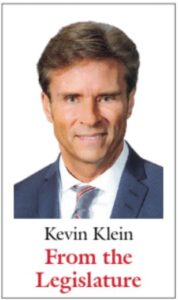
Like many Manitobans, I am concerned about the ongoing unprofessional spreading of misinformation in the House and on multiple social media platforms by opposition MLAs. This is hurting us all.
I have been told, “It is all part of the game." Well, the game negatively impacts the quality of life for all Manitobans and has lasting negative impacts on our communities and province. The game is unnecessary, unprofessional, and unbecoming of an elected official.
It is widely recognized that the spread of false or misleading information, commonly called "fake news," can negatively affect elections. This is because such information can manipulate people's perceptions, beliefs, and decisions, distorting the democratic process.
Studies have shown that fake news can affect people's attitudes and behaviours, influencing voting preferences, trust in institutions and media, and participation in civic activities. False information can create confusion and polarization, exacerbating social and political divisions.
Moreover, the widespread circulation of fake news can undermine the credibility of legitimate news sources and journalists, who play a crucial role in providing accurate and reliable information to the public. This can further erode the democratic values of transparency, accountability, and informed decision-making.
I believe facts matter. Facts are essential in politics because they provide the foundation for informed decision-making and policy formulation. Political decisions profoundly impact people's lives, and it's crucial that these decisions are based on accurate and objective information, not political spin and personal attacks.
Here are some reasons why I believe facts matter in politics:
Making Informed Decisions: Political decisions that are based on accurate facts and data are more likely to produce positive outcomes. Political decisions could be based on assumptions or biases without factual information, leading to poor outcomes.
Holding Politicians Accountable: Politicians are responsible for being honest and transparent with their constituents. By relying on facts and data, politicians can be held accountable for their decisions and their impact on society.
Building Real Trust: Facts are essential for building trust between politicians and the public. When politicians use accurate and objective information to make decisions, it helps to establish credibility and trust with their constituents. False information leads to division in communities with lasting impacts on the community.
Avoiding Misinformation: In today's age of information overload, it's essential to separate fact from fiction. Misinformation is dangerous to a community and hurts people – imagine if you were the target of a misleading attack.
Therefore, individuals, media outlets, and social media platforms need to be vigilant and responsible in verifying and disseminating information during elections and other political events. Fact-checking, critical thinking, and unbiased media are essential tools to counter the harmful effects of fake news and ensure a fair and informed electoral process.
The Hon. Kevin Klein is the MLA for Kirkfield Park and Minister of Environment and Climate Change.

